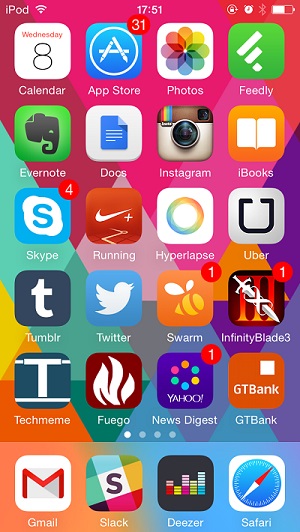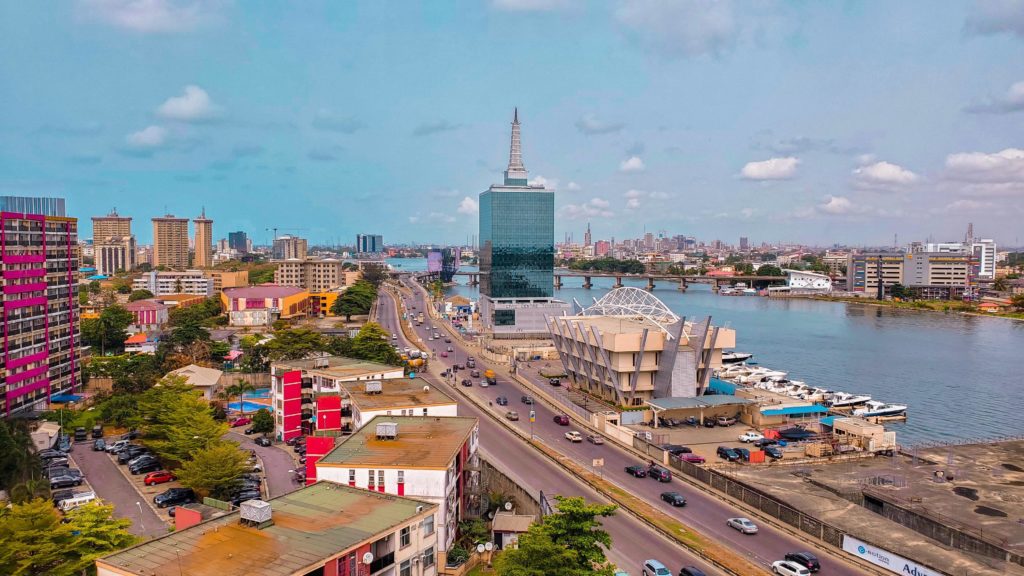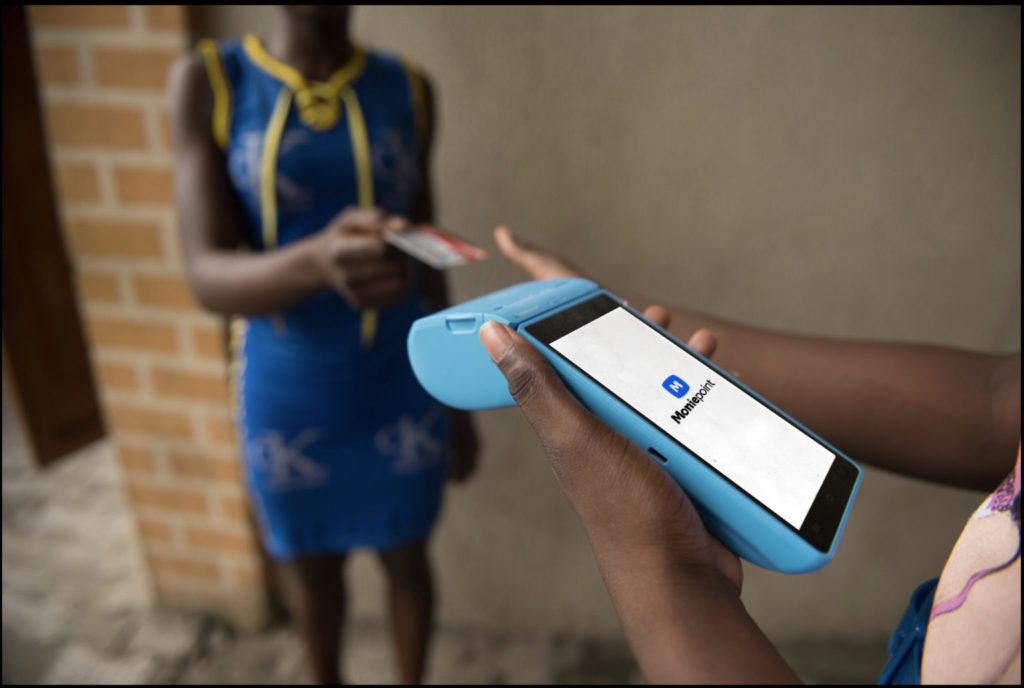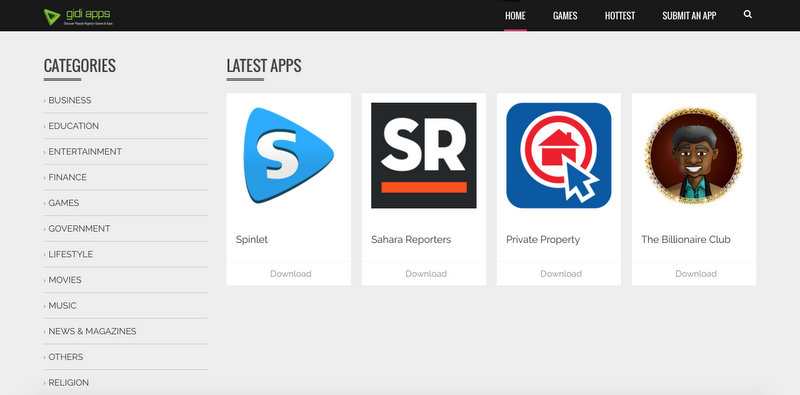
If you thought Hugo Obi had given up on the game, think again. Maliyo Games is alive, and Hugo is driving it.
Gaming is a pretty tough space to be in for African developers. Asides the fickle trickle of advertising, the only way to make real money, it seems, is by doing agency work. Maliyo’s recent titles, like the Union Vibe Quiz for Union Bank and The Billionaire’s Club for Sterling Bank are projects commissioned by brands looking for innovative ways to reach new audiences.
But of late, Hugo has been thinking outside of the issues peculiar to the African gaming space to an even broader issues that affect app developers in Nigeria. The problem of discovery.
If you build it, will they come?
Nigerian internet users are increasingly going online and consuming more and more content. There are 14 million Nigerians on Facebook. Another two million on Twitter. At the bare minimum, everybody’s got Whatsapp. The latest guesstimates on smartphone adoption in Nigeria put the number at around 20 million devices.
But despite the obvious convergence of mobile and internet, local apps struggle to get past a few hundred downloads. Bigger startups with marketing budgets and reach might do a couple hundred thousand. In reality however, fifty thousand downloads would be a real feat for the average Nigerian developer. The trouble is fifty thousand downloads does not seem to be a great return for all time, effort and resources it takes to develop and maintain an app.
Why are Nigerians, for all their mobile and internet savvy, not downloading local apps? There are two possible answers.
There are no apps for that
For my part, I’ve always thought I don’t use local apps because there aren’t that many (useful) local apps to be seen in the first place. My default homescreen on any device I use is a reflection of the apps that matter the most to me, and there is hardly a Nigerian app to be seen, save for GTBank and Uber. I use both almost everyday. I can’t remember the last time I visited the bank for an ordinary transaction, or bought an airtime scratch card. Why can’t I book flights, hotels or movie seats in the same way? As far as I can tell, there are no good Nigerian apps for that.
The apps are hard to find
Or I might be wrong, and have just not found the apps I’m looking for. “There are useful Nigerian apps,” Hugo says.
The problem, according to him, is that local apps are hard to find in a sea of global content in the most popular app stores, because they tend not to rank high. Local discovery is broken. People in Lagos are likely seeing the same apps that people in Europe are seeing, regardless of whether those apps can function in their contexts or not.
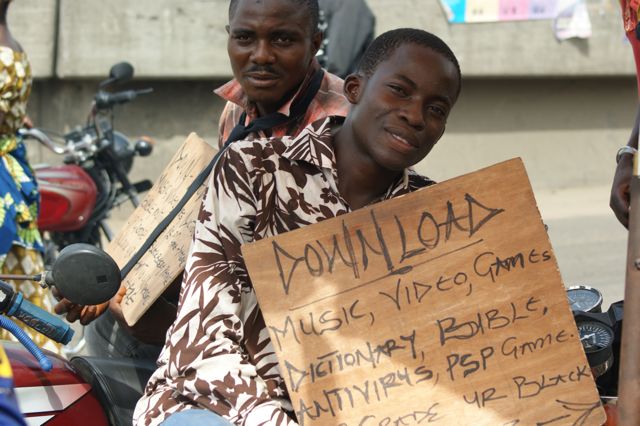
Hugo also points out that first-time smartphone owners are often overwhelmed by the whole experience. They often have no idea of what they should be looking for, and where. So they tend to stick with the popular apps that have been pre-loaded on their device instead of trying to find stuff for themselves. A lot of these people turn to mobile phone “engineers” to download apps and music for them, often for a fee. These mobile engineers carry around a generic collection of apps that are ready to plop on each customer’s phone in mere minutes. The collections will typically have the most popular, global apps that everybody knows, but rarely include local, Nigerian apps.
Gidiapps
Maliyo games have decided to take matters into their own hands by creating their own app store, called Gidiapps. But the app store is not just for Maliyo’s games. Gidiapps is a collection of apps that are either Nigeria-made or focused. In theory, putting them all in one place should make it easy for Nigerians to quickly find relevant apps, without the distraction of apps that are only useful to someone in North America or Europe. This should help local developers achieve more downloads, and ultimately, make more money.
But just because you curate things in one place does not mean that people will find them. Without a distribution strategy, the whole Gidiapps enterprise would be moot. Hugo’s plan is to invest in marketing. Even if it were the amount of money they would have typically spent promoting Maliyo title.
“The assumption I’m making is if I spend $100 promoting one app, my conversions are extremely low. And the argument is I’m pushing a locally relevant game, but what if the users are not interested in (a) a game, (b) a locally relevant game? So why not spend that $100 to push a whole appstore, rather than one single game?”
Hugo is betting that all the apps on Gidiapps are relevant to a certain kind of person. A person interested in Nigerian apps. And if they came looking for one app, they would find other apps they would be likely to download as well, and eventually realise that Gidiapps is the place to find great Nigerian apps to install.
Another smart way to drive awareness early would be to tap the biggest smartphone vendors and get them to send their buyers to Gidiapps.com
“When I buy a phone at computer village, or from Jumia, they could say to the customer, you just bought a phone. To discover great local apps that work for it, go here”.
Looking through Gidiapps, I can a few apps that I might use, given the right circumstances. There is a lot to be said for good design and functionality, and in that department, a lot of the local developers have a ways to go. Compared to its Nigerian competitors, for instance, Uber’s technology and user experience is light years away. Hugo reckons that if they can help developers achieve just one percent conversion of the existing Nigerian smartphone market for each app they make — that is 200,000 downloads — they would have more than enough incentive to make more and better apps.
Gidiapps is not intended to replace the existing app stores that developers already publish to. In fact, Gidiapps will merely link to the stores where the apps are actually hosted. Which means it is not really an app store in the true sense. But apart from just hosting content, appstores exist to help people discover apps. The important thing that Gidiapps is trying to do is aggregating and sending targeted traffic to where it needs to go. If Gidiapps were able to attract and keep dedicated base of people who want Nigerian app content, then the resulting potential for accelerated adoption could become valuable to Nigerian app developers.









